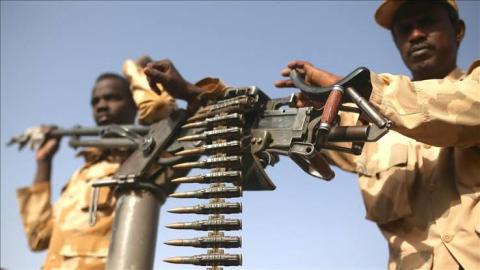In a fabled desert city, a decisive battle could determine Yemen's fate


(CNN)-Marib has the forlorn feel of a place awaiting its destiny, while embracing stoic and stubborn optimism.
The fabled desert oasis, and reputed home to the Queen of Sheba, is today hot, dry and dusty. The rainy season approaches, as does an anticipated Iran-backed Houthi offensive.
Empty plastic bags and crumpled water bottles interspersed with freshly planted trees shaped into hearts line a newly crafted meridian. Fading posters of Yemen's President Abdu Rabu Mansour Hadi hang alongside much newer images of the city's latest war hero-turned-Houthi target, the head of Yemen's special forces, killed late February. His replacement was also killed, just this week.
The scenes serve as a metaphor of Marib's place in Yemen. It is a tiny island of hope in a sea of discarded dreams. After six years of war, the city of more than 2 million people has emerged as pivotal in Yemen's future. It is a gateway to much of the country's oil and gas wealth, and home to a growing population of internally displaced persons (IDPs). It's also the internationally-recognized Yemeni government's last major stronghold in the north.
CNN was in Marib at the invitation of the Yemeni government.
If it lost Marib, Hadi's government and its Saudi backers would have little leverage at eventual peace talks with Houthi rebels, would lose military credibility, and likely encourage the Houthis to continue fighting.
The Houthis control almost everything west of Marib including the Yemeni capital of Sanaa. Tribes hold shifting sway east and in the mountains immediately south of Marib. The nation's other big powerbroker, the Southern Transitional Council (STC), dominate in the deep south particularly around the potentially lucrative port city of Aden and have already indicated they would be unwilling to partner with a weakened Hadi.
Hadi, the head of the internationally recognized government, has been in forced exile since the Houthis chased him out in 2015. While some of his ministers still live in Yemen, Hadi remains holed up in Riyadh, a mostly impotent encumbrance to his backers, his value limited to his (unopposed) election, and the aura of democracy that confers on his government.
As proxy wars go, Yemen is more complex than most, with many interests at play. Saudi Arabia wants stability and a friendly government in Sanaa.
Iran has an opportunity through its Houthi proxies to keep its nemesis Saudi Arabia bogged down and out of other regional adventures more vital to its interests. The UAE, which backs the STC, benefits from the war's crippling effect on Aden port because it shifts potential maritime business there to Dubai. The tribes will mop up surplus cash and back its source, in much the way Yemen's last strongman Ali Abdullah Saleh ran the country through carefully controlled largesse.
While the UAE and Saudi claim unity of purpose, most Yemenis don't buy it. Between the two Arab Gulf States, their Western allies and Iran, most Yemenis feel victim to outside powers beyond their control.
The Saudi-led coalition specifically has been blamed for at least 18,500 civilian deaths in its air campaign backing the Yemeni army, according to the UN. In recent months, Saudi warships have blocked oil tankers from docking at the port of Hodeidah, exacerbating the north's fuel shortages and worsening the world's worst humanitarian crisis. Oil and other supplies continue to arrive through other routes, however, including through Yemeni government-controlled territory.
Meanwhile, the Houthis are blamed by many for dragging Yemen into crisis by taking over vast swathes of the country in 2014. And many are concerned that the UAE has a vested interest in Yemen's instability.

Yemeni officials on Monday condemned arrests and prosecutions by the Iran-backed Houthi militia directed against media, journalists and celebrities…

Yemen's warring parties are gearing up for new waves of conflict in 2023 amid a lack of decisive steps towards sustainable peace, adding to the suf…

The UAE will help to recruit doctors and deliver crucial supplies for hospitals in Yemen under a major healthcare drive. The Khalifa bin…